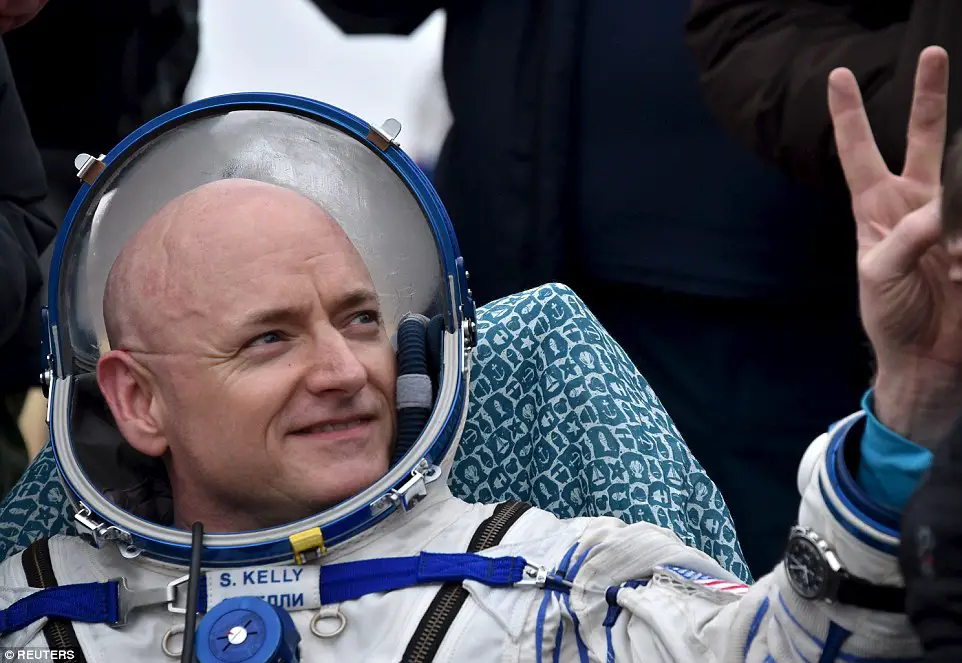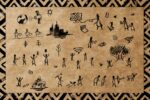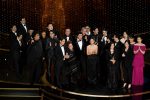Some Pale Blue Thoughts
How do you go from nearly flunking school to doing what no human has ever done before? We asked.
By James Reyes, The University of Texas at San Antonio
After spending a year orbiting Earth aboard the International Space Station, last week Captain Scott Kelly paid a visit to Trinity University, in San Antonio, Texas, to give a lecture about what he had learned in his life that had prepared him for the expedition.
One young female student timidly asked a question that everyone had been thinking: What does a sun rise look like from outer space?
Kelly’s brow furrowed deeply in thought and he paused, searching for the proper words. “Like blue paint streaked across a mirror,” he admitted.
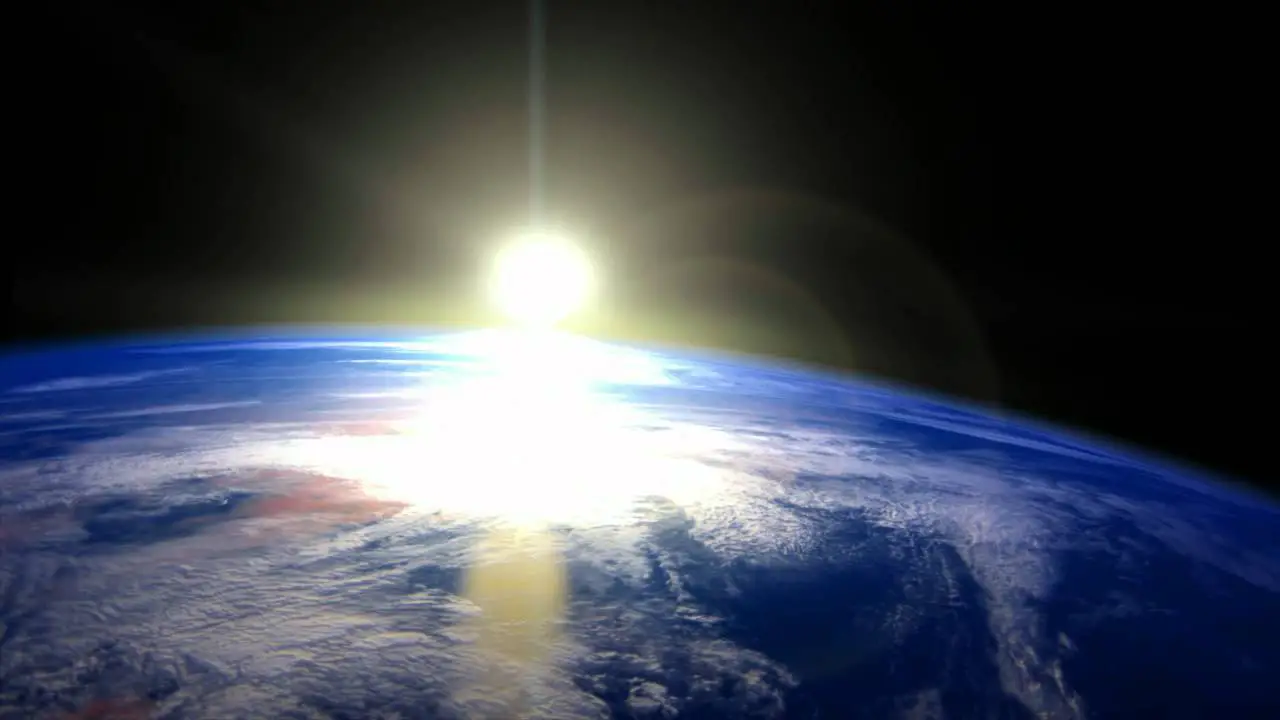
After looking at the astronaut’s phenomenal photography and listening to him recount his accomplishments though, one can’t help but begin to wonder: What the heck am I doing with my life? Though aspiring to be the next Scott Kelly is a lofty ambition, even famous astronauts had to start somewhere. After hearing him speak, here are the three lessons I learned from the inspiring man about how to achieve greatness.
Past Failures Are Not the End
If you’re like me, and you’re honest, you tend to avoid certain goals because you failed at them in the past. Perhaps, after telling your parents that you were going to be a pro skater, buying a flimsy skateboard at Target, and zooming down your driveway head-on into a mound of gravel, you decided that skating wasn’t for you. Regardless, you remember the pain you felt after failing, and it discouraged you from ever trying again. Even considering another attempt gives you stomach anxiety. If so, you are not alone in letting fear dissuade you.
Shockingly, Kelly was a lower-than-average student in high school. He even admitted to graduating in the “lower rungs” of his grade.
In his classes, the future record-breaking astronaut spent more time looking out the window than paying attention.
In fact, if his admission is to be believed, Kelly’s lack of concentration was so bad that he accidentally applied to the wrong college.
Regardless, he was accepted to Navy, became a test pilot and learned how to work hard. After a crashing incident, those around him wondered whether he should continue. To this Kelly remonstrated to the auditorium crowd, “If you’re not willing to fail, you’ll never know your full potential.”
Set the Hardest Goal
Though a historic explorer and future icon of space travel, Kelly cites his mother as one of his biggest inspirations. He told the story of when his mother declared to her husband that she wanted to join the police force alongside him. By, among other things, having her wrestle and drag a dummy to practice technique, Kelly’s dad helped his wife train and achieve her goal.
By the time she reached the police academy, her dedication and discipline allowed her to become the first female police officer in West Orange, New Jersey, even beating out some of the male applicants. She was also the first woman to pass the men’s physical fitness test.
The legendary astronaut attributes his mom’s persistence as the source of one the most important lessons he learned as a child.
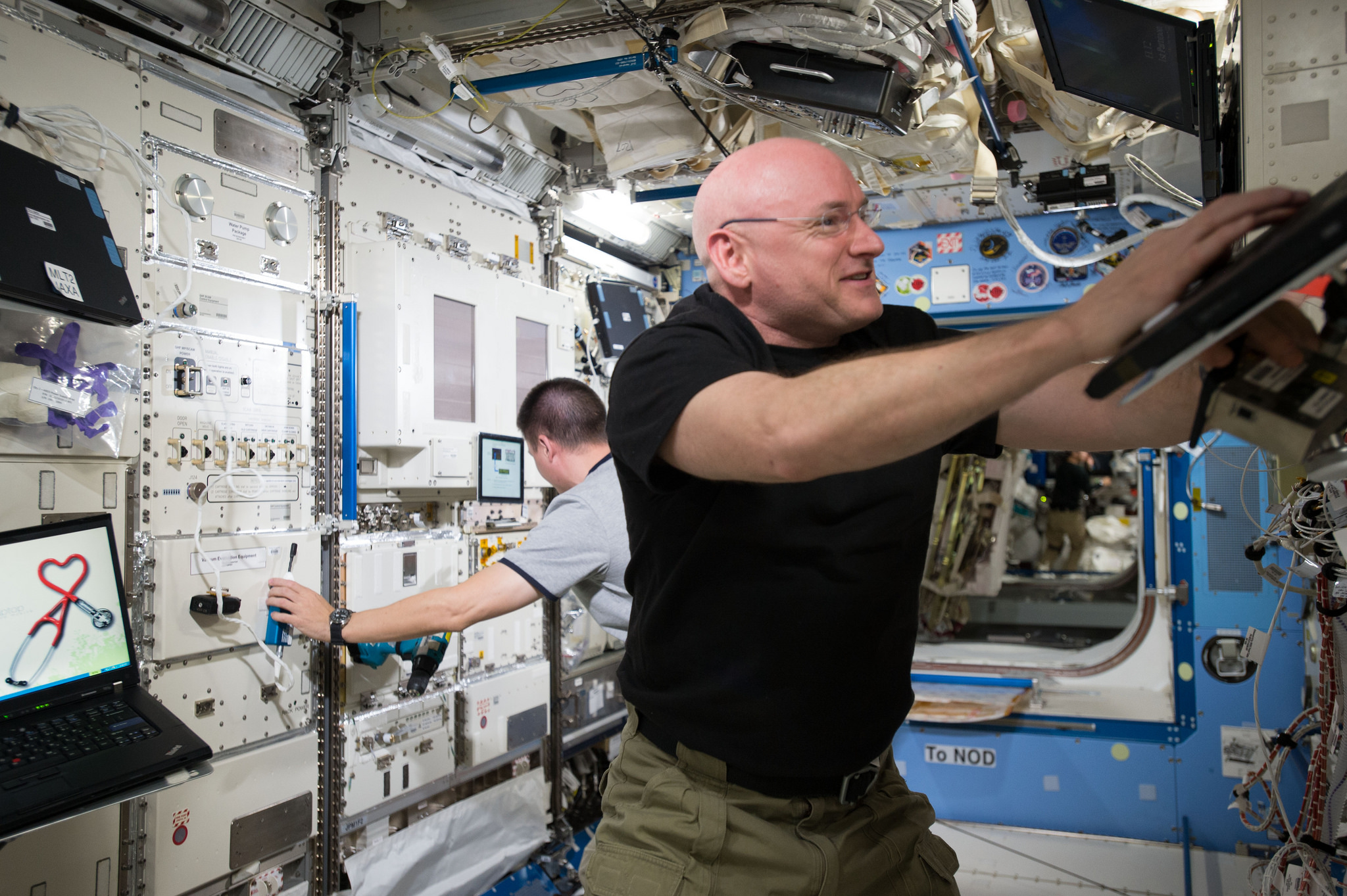
Through her determination to break records herself, Kelly learned that when you’ve set yourself an impossible goal, the key is dividing into possible steps, a lesson he carried with him to the International Space Station.
For 340 days Kelly floated in zero-G, all while his bodily fluids were measured and evaluated on a “regular” basis. As uncomfortable and disorienting as it may sound, he was convinced that his temporary discomfort would bring long-lasting change to the world. He stressed that, “If we could build the station, we could go to Mars. We could cure cancer.”
When asked how to find a goal worth your time, Kelly highlighted the importance of “finding what excites you, and work[ing] hard,” which is good news for anyone who has felt pressured to abandon their passions. Sometimes, instead of asking, “Can I do it?” you should ask “Do I want to do it?” You can never know what can and cannot be done; so long as there are perceived barriers, there will be people breaking them. You can, however, know whether or not something still deserves your time. Kelly learned that he liked working on engines more than flying jets. And I’m not returning to that skateboard.
Switch It Up
I am not the greatest team player. I shudder at the announcement of group projects, and squirm when members explain their roles. Before Kelly’s lecture, I held this meme to be a self-evident truth. But, even though it may be true now, there is always the possibility of change.
Kelly provided an uncommon vision of leadership and teamwork. First, he challenged the expectation of hierarchy that most Americans are raised to believe: Bob is the boss; aspire to be like Bob.
Instead, he used the example of the International Space Station and its multinational collaborative efforts.
He believed the station to be the most difficult vehicle ever built, something to which its 2,000 switches and breakers could attest.
Despite its technical complexity, or perhaps because of it, the global station required different perspective and styles of leadership, not a constant reapplication of the same mindset. Kelly believes as a result of the heterogeneity, he learned more about himself and the crew functioned more smoothly.
If I adopt this mindset, there is a chance I won’t despise collaborative efforts quite as much. Perhaps, by embracing non-traditional ideas, the end result may exceed even the professor’s expectations. Or, the whole effort could crumble, like my pride when I flew off my skateboard.
Regardless, if growth happens only when you’re outside your comfort zone, sometimes you gotta get out of it.


